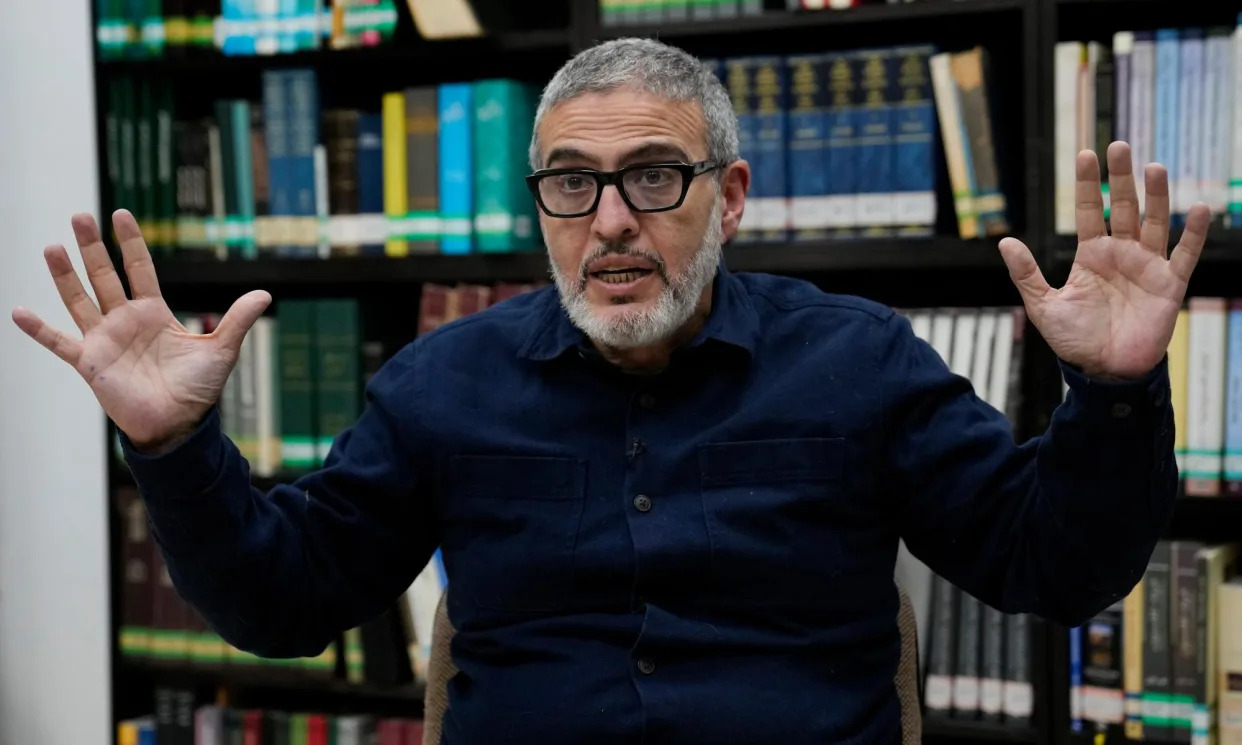Geneva Abdul
Sun, 5 May 2024

Ghassan Abu-Sitta, a Palestinian-British surgeon, was due to speak at the French senate about the Israel-Gaza war.Photograph: Hussein Malla/AP
A London surgeon who provided testimony on Israel’s war in Gaza after operating during the conflict has said he feels criminalised after being denied entry to France over the weekend.
Prof Ghassan Abu-Sitta, a plastic and reconstructive surgeon was due to speak about the war to the French parliament’s upper house on Saturday. However, after arriving at Charles de Gaulle airport north of Paris on a morning flight from London, he was informed by French authorities that Germany had enforced a Schengen-wide ban on his entry to Europe.
Abu-Sitta said he had no knowledge that German authorities, who had previously refused his entry to Berlin in April, had put an administrative visa ban on him for a year, meaning he was banned from entering any Schengen country.
“What I find most difficult to accept is this complete criminalisation,” Abu-Sitta said on Sunday, adding that he was previously told by authorities he would be unable to enter Germany for the month of April.
“I was put in a holding cell and marched in front of people at Charles de Gaulle with armed guards and then handed over to the staff in the plane, all so that I’m unable to give evidence,” he said.
Instead of taking part in a conference at the French senate to speak about Gaza, on invitation from Green party parliamentarians, Abu-Sitta was stripped of his possessions and taken to a holding cell. Before being deported to the UK, he was able to attend the conference via video on his lawyer’s phone from the detention centre.
“It was critical for me that we do this, that they’re unable to silence us,” said Abu-Sitta, who has worked in Gaza since 2009, as well as in wars in Yemen, Iraq, Syria and Lebanon.
During October and November 2023, at the beginning of Israel’s war in Gaza, which has since killed more than 34,000 Palestinians, Abu-Sitta operated from al-Shifa and al-Ahli hospitals. During his 43 days, he described witnessing a “massacre unfold” in Gaza and the use of white phosphorus munitions, which Israel has denied.
Abu-Sitta has since provided evidence to Scotland Yard and the international criminal court (ICC) in The Hague. He intends to challenge his entry ban in the German courts and is considering going to the European court of human rights.
In April, Abu-Sitta travelled to Berlin to participate in the Palestine Congress forum, where he was denied entry by authorities because they “could not ensure the safety of attendees in the conference”, he said. The German federal police have been approached for comment.
His lawyer, Tayab Ali, said the German government issued the Schengen-wide ban without any consultation with Abu-Sitta, and without disclosing the information the ban is based on.
“It is clear to us that there is an organised attempt to discredit medical witnesses and in particular Prof Ghassan from providing details about the consequences of Israel’s military action in Gaza,” said Ali, who is also the director of the International Centre of Justice for Palestinians (ICJP).
“The ban appears to be a cynical attempt to silence eyewitnesses giving testimony to parliamentarians and law enforcement agencies.”
The incident comes after diplomats from G7 nations urged officials at the ICC not to announce war crimes charges against Israel or Hamas officials, amid concerns that such a move could disrupt the chances of a breakthrough in ceasefire talks.
Germany, widely seen as the second largest arms exporter to Israel behind the US, is facing a domestic lawsuit over weapons sales to Israel. Last week, the international court of justice (ICJ) rejected a request by Nicaragua to issue Germany emergency orders to desist selling arms to Israel, but declined to throw out the case altogether.
“The only reason the Germans would want a European-wide ban is to stop me from getting to The Hague,” said Abu-Sitta.
“It communicates to me the complete complicity of the German government in the genocidal war.”



 J
J







